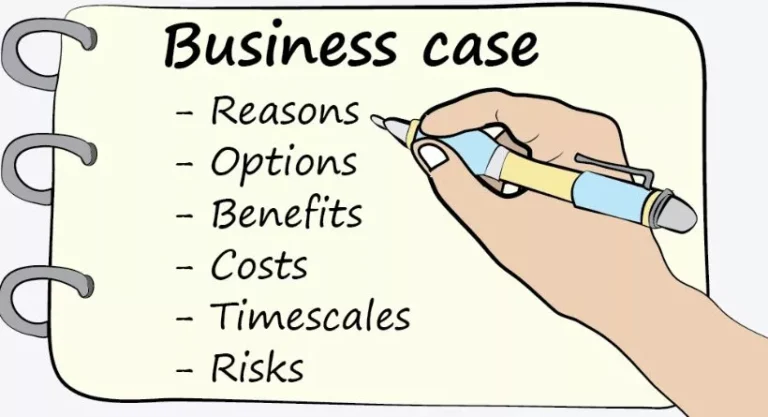If you’ve ever been tasked with writing a business case, you know how overwhelming it can be. Whether you’re presenting a proposal to a client, trying to secure funding for a project, or simply trying to get buy-in from your team, writing a compelling business case is crucial. However, many people struggle with putting together a well-structured and persuasive case. This is where we come in to help!
We understand that the idea of writing a business case can be daunting, especially if you’re not familiar with the process. However, we’re here to help you tackle this challenge head-on. In this post, we’ll provide you with a comprehensive guide to writing a business case that is clear, concise, and persuasive.
Our aim is to help you identify the key elements of a business case and guide you through the process of crafting a document that effectively communicates your ideas and proposals. We’ll provide you with examples, tips, and analogies to ensure that you understand the process and feel confident in your ability to write a compelling business case.
So, if you’re ready to learn how to write a business case that will impress your stakeholders and help you achieve your goals, keep reading!
I. Understanding the Basics of a Business Case

A Business Case is a comprehensive, structured, and well-documented approach to decision making, that outlines the problem to be solved, the potential solutions and the recommended course of action. It’s a strategic tool that helps businesses to weigh up the pros and cons of a proposed project and make informed decisions about whether to proceed with it.
Define a Business Case
A business case is a written document that provides a clear and concise description of the problem to be solved, the proposed solution, and the benefits and costs associated with the solution. It’s a crucial tool that provides decision-makers with the information they need to make informed decisions.
Discuss the Purpose of a Business Case
The purpose of a business case is to provide decision-makers with a comprehensive and persuasive argument in support of a proposed project. It serves as a guide to decision-making, helping to identify and evaluate the potential risks, costs, and benefits of a proposed solution.
Explain the Key Components of a Business Case
The key components of a business case include an executive summary, a statement of the problem, a proposed solution, a cost-benefit analysis, and a recommendation. The executive summary provides a brief overview of the business case, while the statement of the problem outlines the issue that needs to be addressed. The proposed solution describes the recommended course of action, and the cost-benefit analysis evaluates the potential costs and benefits of the solution. The recommendation summarizes the key findings and provides a clear conclusion.
Read More: How to Create an Attractive Framework for Storytelling? 2023
II. Conducting Research for Your Business Case

Discuss the Importance of Research
Research is a crucial part of developing a business case, as it helps to gather the data and information needed to make informed decisions. It provides the evidence required to support the proposed solution and demonstrate its viability.
Explain How to Gather Relevant Data and Information
To gather relevant data and information, you need to identify the key questions that need to be answered and then determine the best sources of information to answer those questions. This may involve conducting surveys, interviews, and focus groups, analyzing existing data, and reviewing industry publications.
Provide Examples of Useful Research Tools
Some useful research tools include online surveys, customer feedback forms, focus groups, and market research reports. These tools can help you to gather information about customer needs, preferences, and behaviors, and provide insights into the market and industry trends.
III. Structuring Your Business Case

Discuss the Importance of Structure
Structure is an essential part of a business case, as it helps to ensure that the document is well-organized, easy to understand, and provides a clear and persuasive argument in support of the proposed solution.
Explain How to Create an Effective Structure
To create an effective structure, you need to start by defining the key sections of the business case, including the executive summary, problem statement, proposed solution, cost-benefit analysis, and recommendation. Next, you need to create a clear and logical flow, making sure that each section builds on the previous one and provides a clear and persuasive argument.
Provide Examples of Effective Structures
Some effective structures for a business case include a chronological structure, a problem-solution structure, and a comparative structure. The chronological structure outlines the key events and milestones of the project, while the problem-solution structure focuses on the problem and the proposed solution. The comparative structure provides a side-by-side comparison of the potential costs and benefits of the solution.
Read More: How Small Businesses Can Use Business Intelligence Awesome Ways 2023
IV. Writing Your Business Case

Discuss the Importance of Clear and Concise Writing
Clear and concise writing is important because it makes the business case easier to understand and more persuasive. It helps to ensure that the key points are easily accessible, and the argument is easy to follow.
Explain How to Write Persuasively
To write persuasively, you need to start by understanding your audience and what they are looking for in a business case. Then, you need to use clear and concise language to present the key points, and provide clear and compelling evidence to support your argument. Additionally, using analogies, examples, and statistics can help to illustrate your points and make your argument more convincing.
Provide Examples of Persuasive Writing
Examples of persuasive writing in a business case include using statistics to demonstrate the potential benefits of the solution, providing testimonials from satisfied customers to demonstrate the effectiveness of the solution, and using analogies to help illustrate the potential benefits of the solution.
V. Presenting Your Business Case

Discuss the Importance of Effective Presentation Skills
Presenting a business case effectively is essential because it helps to ensure that the key points are communicated clearly and effectively. Effective presentation skills help to engage the audience and keep their attention, making the business case more persuasive.
Explain How to Effectively Present Your Business Case
To effectively present your business case, you need to start by preparing well in advance. This may involve rehearsing your presentation, creating clear and concise slides, and using visual aids to help illustrate your points. Additionally, using humor, anecdotes, and interactive elements can help to keep the audience engaged and make the presentation more memorable.
Provide Examples of Effective Presentation Techniques
Examples of effective presentation techniques in a business case include using clear and concise slides, using visual aids such as graphs, charts, and images, and using humor and anecdotes to keep the audience engaged. Additionally, using interactive elements such as polls and quizzes can help to keep the audience engaged and make the presentation more memorable.
Read More: How To Create an Effective Editorial Calendar (2023 Guide + Templates)
Conclusion
In conclusion, writing a business case may seem like a daunting task, but by following these guidelines, you can write a persuasive and effective business case that will help you achieve your goals. Remember, a well-written business case is the key to success, and with the right research, structure, writing, and presentation, you can achieve your goals and make your projects a reality.







